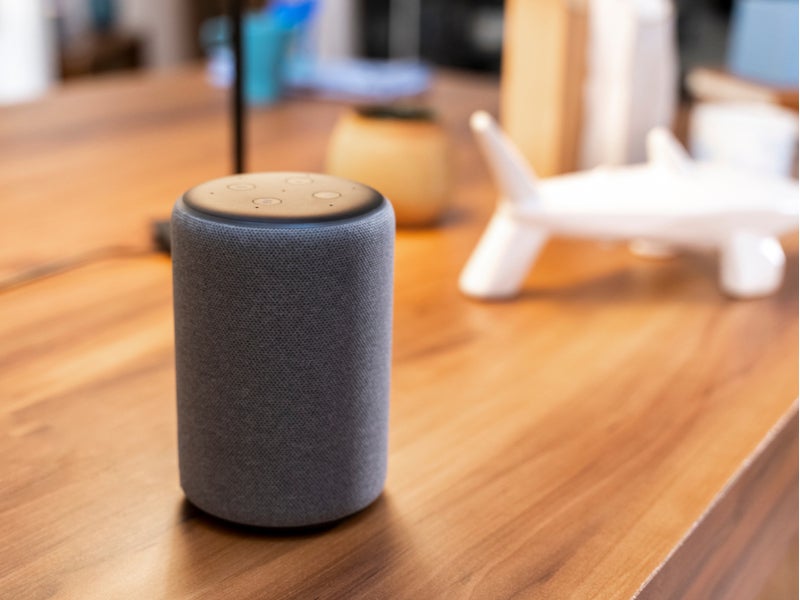
The rise of the internet and advancements in technology has resulted in the rapid growth of smart devices, which help drive sales online. Customers are turning to computers and mobile devices to compare products and make purchases, a trend that is also present in insurance. Live chats, social media, and connected devices such as virtual assistants like Amazon’s Alexa offer newer ways of engaging with customers.
Listed below are the top technology trends impacting D2C in insurance, as identified by GlobalData.
Big data analytics
Big data analytics will be of importance among insurers putting greater efforts into their D2C strategies, particularly as the trend of digitalisation continues to be embraced within the insurance industry. Large volumes of data are shared within digital platforms, and insurers that are able to gain insight from this data will be better positioned to personalise experiences and make marketing content more relevant to their target audience.
Big data analytics is already allowing insurers to monitor customer behaviour and improve their product offering, by providing tailor-made policies and personalised premiums, as well as doing a better job at evaluating risk.
Chatbots
From a D2C perspective, the competitive landscape forces insurance providers to differentiate their value proposition. One such way is providing advice through live chats using chatbots. This offers an additional avenue for direct contact with consumers, and can improve efficiencies and customer satisfaction. Powered by machine learning and artificial intelligence (AI), chatbots emulate natural conversation and can answer a wide range of customer questions. In addition, chatbots gather customer information, useful for evaluating risks and provide personalised experiences, including personalised quotes.
Zurich’s Zara chatbot is intended to help consumers and business customers report claims. Allianz’s Allie is an interactive bot designed to independently perform repetitive tasks, including providing answers to frequently asked questions. While some incumbent insurers have developed web-based chatbots or virtual agents, insurtechs have been at the forefront of integrating AI to engage dynamically with customers. Spixii, for instance, develops chatbots for the insurance industry that can personalise quotes, automate repetitive tasks, and assist with the claims process.
Cloud technology
The insurance industry has been slower at embracing digital transformation than other sectors, in part owing to legacy IT systems. Insurers are gradually moving away from insitu IT systems to more flexible cloud platforms. Cloud technology allows insurers to create direct links with customers as well as to collect large volumes of real-time data that can be utilised for product customisation.
How well do you really know your competitors?
Access the most comprehensive Company Profiles on the market, powered by GlobalData. Save hours of research. Gain competitive edge.

Thank you!
Your download email will arrive shortly
Not ready to buy yet? Download a free sample
We are confident about the unique quality of our Company Profiles. However, we want you to make the most beneficial decision for your business, so we offer a free sample that you can download by submitting the below form
By GlobalDataInternet of Things (IoT) and connected devices
Connected devices offer insurers an additional avenue to engage with customers directly. The devices allow consumers to monitor their heath through wearable technology and mobile apps, their homes via thermostats connected to mobile devices, or their driving behaviour using in-car telematics. Connected devices allow insurers to provide better customer experiences, helping them differentiate themselves beyond price point or products offered.
Berkshire Hathaway Travel Protection’s AirCare is a flight delay and cancellation insurance product for travel within the US. The company collects flight tracking and weather information from several feeds, eliminating the need for customers to file a claim when their flight is cancelled. And in January 2020, LV= General Insurance launched a car insurance voice skill for Amazon Alexa and Google Home in the UK, becoming the first insurer in the country to offer this. Its voice skill can answer over 500 frequently asked questions as identified by the company’s call centers and live chat. In the automated home space, the use of Alexa and Google Home products is more widespread, and insurance companies such as Aviva, Allianz, Vitality, and Liberty Mutual are among those that have developed voice skills for these devices.
As consumers get increasingly used to controlling aspects of their environment – driving the use of connected devices – insurers will be able to enhance risk profiling and offer more customer-centric products.
Automation and targeted marketing
Increasingly, insurers will embrace automation solutions for marketing purposes. This will allow content to be tailored for each target audience. Data collection and automation will enable insurers to showcase content that is relevant to customers and to do so at the right time. In this way, insurers can personalise ads and improve customer-centricity.
This is an edited extract from the Direct to Customer in Insurance – Thematic Research report produced by GlobalData Thematic Research.






Related Company Profiles
Aviva Plc